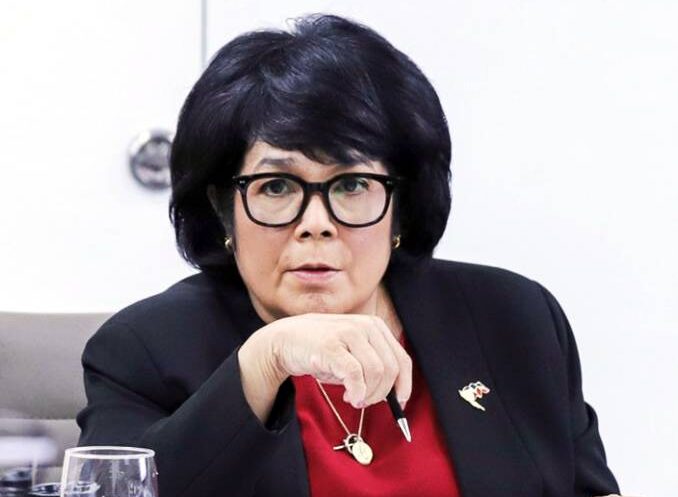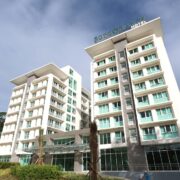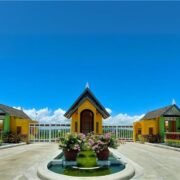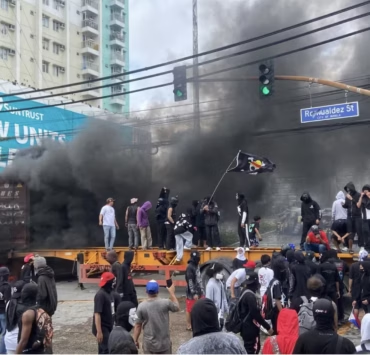Loyzaga urges multisectoral effort on Verde Island Passage

Verde Island Passage (VIP) is the “center of the center” of the world’s marine shore fish diversity, as pointed out by an environmentalist and former chief of the environment agency who called for current initiatives by the government and the private sector to be harmonized to preserve its marine biodiversity.
A marine corridor spanning over 1.4 billion hectares between the coast of Batangas and Mindoro island, VIP serves as the habitat of more than 1,700 marine species, including 60 percent of the world’s shore fish species and 300 coral species.
This Philippine marine feature therefore plays a crucial role in the world’s marine environment, according to former Environment Secretary Maria Antonia Yulo Loyzaga.
Energy source
At a policy forum on VIP held by the Department of Environment and Natural Resources (DENR) on Sept. 15, she cited VIP’s high biodiversity as playing a key role in the transportation, energy and ecotourism sectors, in coastal and marine-based livelihoods and in climate regulation and the stability of the ocean’s food web.
For one thing, VIP serves as a source of natural gas deposits for the archipelago-province of Palawan, Loyzaga noted in her speech at the forum.
Last year, the Philippines embarked on a just energy transition, which Loyzaga said meant that “certain hard choices needed to be made.”
“Among them was the choice of liquified natural gas as a transition fuel. This trajectory had many implications, not least of them environmental,” she said.
Undiscovered biodiversity
Despite its being a vital marine area, VIP had not been spared by environmental calamity—such as in early 2023 when the MT Princess Empress sank amid rough seas off the coast of Oriental Mindoro on Feb. 28. The vessel was then carrying about 800,000 liters of industrial fuel.
Much still needs to be done to fully utilize the resources in VIP. Loyzaga said there is a need to further understand the marine biodiversity of the area.
“What we know of VIP’s biodiversity today does not even cover its deepest areas which are yet to be fully explored. In short, we have yet to discover the richness of this treasure,” she said.
“We do not, as of yet, have an estimate of our ocean-based natural capital, much less a shared comprehensive understanding of the VIP’s actual physical, chemical and biological contributions to our economy and society,” she added.
‘Knowledge of the seas’
Loyzaga called for the establishment of a marine scientific research center in VIP as well as the enactment of a National Ocean Environments Policy to protect critical regions of the country’s coastal and marine environments.
She also suggested tapping into the knowledge of the country’s fishermen and seafarers when it comes to policies to protect the ocean.
“You have one million fishermen. They also have knowledge of the seas, but we don’t ask them what they know. You have 800,000 seafarers who go all over the world, they have knowledge of global oceans. We also don’t tap them for that knowledge,” she told the Inquirer at the sidelines of the forum.
“[T]here are a lot of private sector and other stakeholders like the provincial government, for example, that are undertaking their own different activities for the resilience of the VIP,” Loyzaga said. “There should be a symphony. There should be a single strategy.”
“The DENR then sought to fulfill its mandate by reaching out directly to the private sector and to then [Energy Secretary Raphael Lotilla] to advance a whole-of-government and whole-of-society pathways towards the conservation and protection of the VIP,” she said.
‘Unregulated activities’
Lotilla, Loyzaga’s successor in the DENR, stressed the importance of protecting VIP from being used as a passageway by foreign vessels, since the corridor is “narrow” and “fringed by highly sensitive marine areas.”
“I would not want to see fishing vessels from third countries passing through the Verde Island Passage on the pretext of that being a waterway used for international navigation from the South China Sea to the Pacific,” said the environment chief who also attended the forum.
“From my standpoint, the Verde Island Passage is not an international waterway for navigation. Unlike, for example, the Strait of Malacca and the Strait of Singapore,” he said.
Lotilla also emphasized the need for regulation in waters outside the country’s jurisdiction, pointing out that activities in these areas could still impact the waters within Philippine territory.
“What we don’t want to see is that in areas beyond national jurisdiction, it becomes a free-for-all in terms of environmental standards,” he said.
“Activities that can undermine our own efforts in areas under national jurisdiction will be subverted by unregulated activities by third parties in these high sea areas or the areas beyond our extended continental shelf,” he said.
Loyzaga said: “At the end of the day, what you really want to see in the VIP is that it maintains its rich biodiversity and delivers the ecosystem services that it’s delivering, [while also serving] the economic goals and the sustainable development goals of the country.” —WITH A REPORT FROM PNA

















